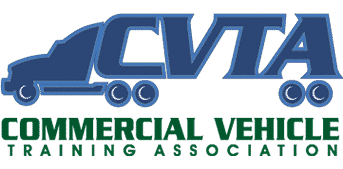Truck drivers are essential to our nation’s economy and trucks transport over 70% of the nation’s freight. Much of this is hauled in dry vans, which are the type of vehicles that line up most closely with the standard idea of a “semi-truck.” Refrigerated trucks, also called reefers, are also common. However, beyond these more well-known varieties of transportation, there are many types of specialized trucking. These drivers haul unique freight and often earn high pay due to the additional training and skills required.
Some types of specialized trucking include:
Livestock Transport
According to the Federal Motor Carrier Safety Administration (FMCSA), there are over 250,000 livestock haulers in the United States. These trucks transport various animals to farms across the country. Cattle haulers are among the most common, but trucks may also transport chickens, horses, pigs, or even bees. In order to succeed as a livestock trucker, you will need to have an understanding of how to care for the animals you are transporting, and many of these haulers have farm experience. This type of work is often seasonal and is subject to regulations from not only the FMCSA and Department of Transportation (DOT), but also the United States Department of Agriculture (USDA) and other organizations.
Car Haulers
Did you know that the first semi-truck was invented to haul automobiles to buyers without causing unnecessary wear and tear? Transporting cars to dealerships has become more advanced over the years and instead of moving one vehicle at a time, these specialized trucks typically have an open trailer with several cars. This type of trucking requires knowledge of weight regulations and car haulers need to know how to safely load the vehicles and inspect them for damage. Due to the high value of this type of freight, it’s important for these truckers to build a strong reputation, and many are owner-operators.
Hazardous Materials
The category of hazardous materials (hazmat) includes a variety of potentially dangerous substances. One of the most common is gasoline and without fuel trucks, transportation in the United States would be severely impacted in less than a week. These jobs require both the hazmat and tanker endorsements. Most companies will prefer to hire drivers who have experience with non-hazardous freight first, because a strong safety record is essential for these high-risk hauls.
Getting into Specialized Trucking
If you are interested in jobs beyond dry van or reefer trucking, it is important to know how to get started. The first step is to earn your commercial driver’s license (CDL). Then, by looking at what type of trucking you are interested in, you will need to determine what additional endorsements you may need. In most cases, it is recommended to start with a more traditional truck driving job to get some experience before you apply to specialized trucking companies. However, there may be exceptions to this, such as if you have related experience outside of driving (e.g. a farming background, in the case of livestock hauling).
Our job placement assistance team can help you consider your options, and if additional endorsements are needed, our classes at Phoenix Truck Driving School cover material for the hazmat, tanker, and doubles/triples tests.
Earn Your Commercial License
Phoenix Truck Driving School can get you on the road and earning in as little as four weeks. Our program gives you valuable skills that will continue to benefit you throughout your trucking career.



